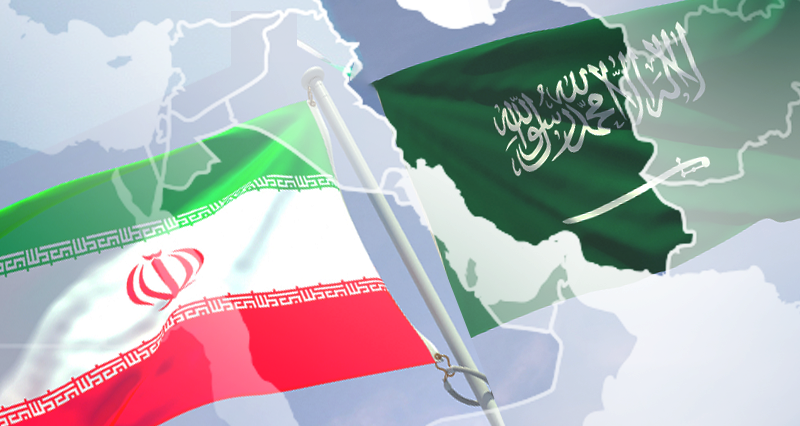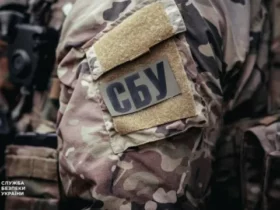In an unforeseen development, Iran and Saudi Arabia declared in Beijing that they have overcome seven years of political tensions through China’s mediation and will resume diplomatic relations. Earlier talks between the two countries, mediated by Iraq and Oman, had been derailed due to the accordance of riots in Iran and the active role of Saudi-backed Persian-speaking television networks in these riots. With the success of Iranian authority in quelling the street riots, Saudi Arabia returned to the negotiation table. And with China’s strategic participation, one of the Middle East’s most critical political deadlocks was resolved.
Where did problems come from?
The occurrence of the Arab Spring altered the Middle East’s political balance, and various players began to expand their efforts to improve their degree and depth of influence in the region. Unsurprisingly, this circumstance sparked conflict and engagement among major powers in the region.
The termination of Iran-Saudi Arabia relations is primarily attributed to the execution of Sheikh Nimr Baqir al-Nimr, a Shia cleric from Saudi Arabia, by the Kingdom, which resulted to attacks on the Saudi embassy and consulate in Tehran and Mashhad by Iranian protesters in 2017. But in fact, the main cause of such tensions was the political frictions that began between the two nations in 2011 over regional competition.
There are many factors that may have had a much greater impact than the attack on the Saudi embassy in terminating the relations between the two sides, including Saudi Arabian troops crossing into Bahrain that led to a massacre in 2011, the deaths of 400 Iranians in the Mina incident in 2015, Saudi Arabia’s financial and political support for terrorist and separatist organizations against Iran, the establishment of anti-Iran television networks to stoke political unrest in the country, as well as launching a war in Yemen.
In response to these malicious efforts, Iran also backed Yemen, fought Saudi influence in Syria and Iraq, and hampered Saudi Arabia’s movements in the Persian Gulf by pressuring Riyadh and imposing its own rationality on the field.
Iran’s approach to the Middle East
Immediately upon the announcement of the restoration of relations between Iran and Saudi Arabia, it was made public that Iran had also begun talks with Bahrain and had launched a new chapter in its relations with Egypt.
While the resumption of relations with Saudi Arabia, as a result of the Kingdom’s decision to return to negotiating table, played a major role in the recent developments, reports of Tehran’s attempts to improve ties with Cairo and Manama, as well as news of improved relations with Abu Dhabi that had been previously announced, indicate that Tehran is now making efforts to improve its ties with neighboring countries, which is a significant shift from over a decade of conflict in the region.
After failing for 8 years during both of Hassan Rouhani’s administrations to restore ties with the West, Tehran has undergone a major review of its foreign policy and has once more turned to strong collaboration with its neighbors while maintaining a balance with the West and the East.
By examining the rationale behind Iran’s policy, it becomes evident that Tehran has come to the realization that high tensions in the region only serve to strengthen its adversaries in the region, namely Israel and the US. The escalation of political tensions and the increased risk of military conflict have only served to bolster the presence of the United States and Israel in the region. These tensions have also had an adverse effect on Russia and China, two major powers that collaborate with Iran. It makes sense that Iran would want to improve ties with its neighbors and lessen tension after enduring a decade of hostilities. Of course, the success of this policy depends on the cooperation of the other parties, and Iran is optimistic that it will receive reciprocal positive actions from them.
Another explanation for recent political events in Iran is the consolidation of domestic politics. Fundamentalists assumed control of the country after Ebrahim Raisi came to power in Tehran. This event resulted in increased collaboration of the military faction with the country’s political and bureaucrat body, as well as a reduction in domestic political tensions. Such stability in domestic policy has emboldened the President’s administration to take serious measures in foreign policy.
In collaboration with the military faction, Raisi has taken significant and decisive measures in foreign policy, without fear of being disrupted by them. There is no doubt that a sizeable portion of the fundamentalist body would have accused Rouhani of lacking enough honor and courage in dealing with Saudi Arabia if his reformist government had taken steps towards fully improving relations with the Kingdom. However, nobody objects when the Raisi government takes the same action.
The effect of improved Middle Eastern political conditions
Improved relations between Tehran and Riyadh, as well as between Tehran and Abu Dhabi, Manama, and Cairo, will decrease tensions in the Middle East and lower the risk of foreign investment. In such a scenario, China and Russia will have the opportunity to extend their presence in the Middle East through strategic initiatives, narrowing the field for their traditional opponent.
The possibility of achieving a new political balance in the Middle East region, which is definitely advantageous to all Middle Eastern players, will be made possible by China’s presence with its major strategic projects in the region and Russia’s growing participation in many areas. Additionally, given the current status of the world oil market, easing tensions in the Persian Gulf will directly affect international energy security, which is not inconsequential.
On the other hand, Lebanon, Iraq, and Syria will all directly benefit from stronger ties between Iran and Riyadh. Among the most significant outcomes of this decrease in tension will be the resolution of the political crisis in Lebanon, the achievement of political stability in Iraq, and the implementation of proactive policies toward Syria.
After 44 years of political relations that have been very tumultuous and have repeatedly reached the point of severing relations and then being resumed, Iran and Saudi Arabia have realized their strategic importance in maintaining security and peace in the Middle East, and this has driven both of them towards more pragmatic policies.

















Leave a Reply